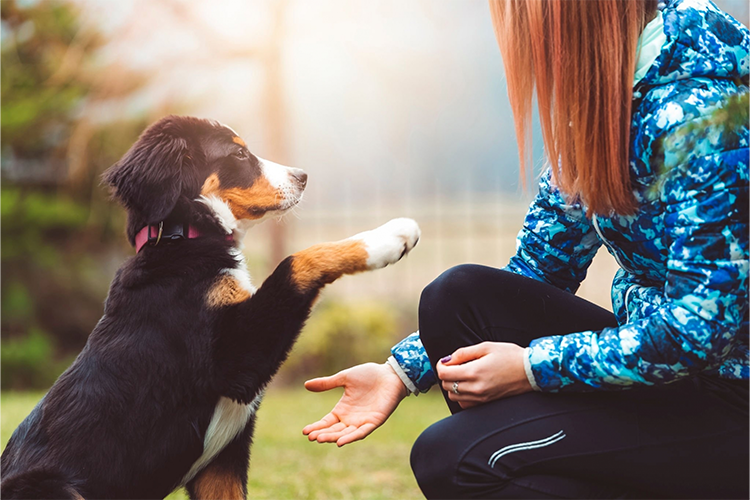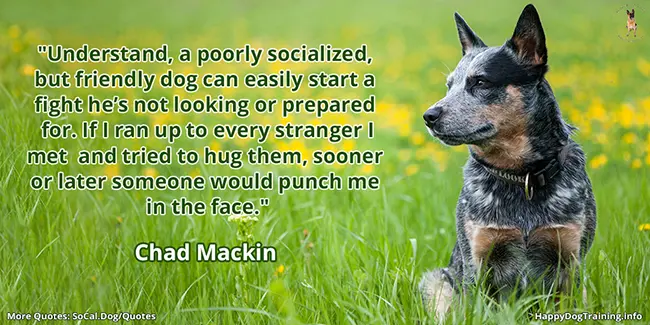The Ultimate Overview to Dog Training Charlotte: Methods for Success
The Ultimate Overview to Dog Training Charlotte: Methods for Success
Blog Article
Unlock Your Pet's Potential: Proven Pet Dog Training Methods for Success
Reliable pet dog training is a nuanced process that pivots on understanding canine habits and using medically backed methods. Dog training. By including favorable reinforcement, developing clear commands, and prioritizing socialization, pet dog proprietors can cultivate an effective connection with their family pets. Difficulties commonly emerge that call for tailored options and a patient technique. Discovering these shown techniques reveals not only the potential for behavioral improvement yet also the deeper bond that can be formed in between proprietor and pet. What crucial approaches must be thought about to truly open your dog's possibility?
Understanding Pet Actions
Comprehending dog actions is crucial for effective training and promoting a favorable partnership between dogs and their owners. An extensive understanding of canine body language, articulations, and social interactions is critical for recognizing their requirements and feelings. Canines connect mainly with non-verbal cues; for example, a wagging tail may suggest exhilaration, while pinned ears can signal fear or entry.

Moreover, ecological aspects play a considerable duty fit a canine's habits. Adjustments in routine, new surroundings, or the visibility of unfamiliar individuals can result in tension or anxiousness in canines. Identifying these triggers enables owners to alleviate negative responses and create proper training methods.
Ultimately, a deep understanding of dog habits lays the structure for effective training methods, boosting both behavior and the overall bond between the pet and its proprietor. dog training charlotte. This knowledge is vital for cultivating a well-adjusted, satisfied canine companion
Positive Support Methods
Effective training relies greatly on positive reinforcement strategies, which have been revealed to generate significant cause shaping wanted habits in pets. This approach includes rewarding a pet dog for showing specific actions, thus raising the likelihood that these habits will certainly be repeated. Rewards can take different kinds, including treats, appreciation, playthings, or play, depending upon what motivates the specific canine.

It is crucial to progressively phase out incentives as the pet dog discovers the habits, transitioning to intermittent reinforcement. This method keeps the behavior with time while stopping dependency on constant benefits. By concentrating on favorable reinforcement, fitness instructors can cultivate a relying on partnership with their pets, promoting a healthy and cooperative training setting that improves general obedience and efficiency.
Establishing Consistent Commands
An essential element of effective canine training is the establishment of regular commands. Uniformity in commands is critical for reliable interaction between the trainer and the dog. When commands are consistent, canines discover to associate certain words with wanted behaviors, which speeds up the training procedure and improves understanding.
To establish regular commands, it is crucial that all household members make use of the same terminology and motions. For example, if someone uses "sit" while another says "take a seat," it can develop complication for the pet dog. Select clear, unique words for commands and make certain every person involved in the pet's training abides by these selections.
Enhance commands with constant technique, guaranteeing that the canine receives enough chances to respond properly. When a pet efficiently follows a command, immediate favorable reinforcement ought to comply with.
Finally, be patient. Establishing regular commands takes some time and initiative. With commitment and clarity, you will help your dog establish a solid understanding of expectations, eventually causing a mannerly buddy.
Socialization and Exposure
Mingling a dog is vital for fostering a certain and well-adjusted companion. This process includes exposing your pet dog to a selection of atmospheres, individuals, and other animals to create their social abilities and versatility. Early socializing, preferably in between the ages of click 3 to fourteen weeks, is critical, as it prepares for a canine's future actions.
During socializing, aim to give positive experiences in different setups, such as parks, active streets, and homes with other pet dogs. Present your dog to different stimulations, consisting of sounds, sights, and smells, guaranteeing that each encounter is rewarding. This exposure helps reduce anxiety and anxiousness, leading the way for a much more resistant pet.
Participating in controlled group play sessions with other canines can also improve social skills, showing your pet proper communications and borders. Always check your pet's convenience degree throughout these experiences, progressively enhancing exposure as their self-confidence expands. Remember, the goal is to develop an all-around animal that grows in varied scenarios, advertising an unified connection with both people and other animals. Focusing on socializing will significantly contribute to your dog's overall happiness and habits throughout their life.
Conquering Common Educating Challenges

One more regular problem is disturbance. Canines may battle to concentrate in strange or active setups. Slowly desensitize your canine to diversions by starting training in a silent atmosphere and gradually introducing more stimuli as they end up being proficient (dog training near me). Favorable reinforcement strategies, such as deals with and praise, can preserve motivation and focus.
In addition, behavioral issues like leaping or excessive barking can become discouraging. Address these by instructing alternate behaviors, such as sitting comfortably when welcoming guests. Uniformity and patience are important; strengthen desired actions continually and prevent abuse, which can bring about confusion.
Lastly, acknowledge that each pet is unique, and training timelines may vary. Tailor your approach to your canine's specific requirements, and look for specialist advice if required. With perseverance and the appropriate approaches, getting over these challenges click here to find out more can result in a well-trained, delighted canine buddy.
Conclusion
In verdict, unlocking a dog's potential requires a detailed strategy that integrates an understanding of canine actions, the application of favorable support methods, and the establishment of consistent commands. Early socialization and direct exposure to varied atmospheres further improve a pet's adaptability and confidence. By attending to typical training obstacles with customized strategies browse this site and persistence, a cooperative and harmonious connection between pet and handler can be fostered, eventually causing a well-behaved buddy efficient in thriving in numerous scenarios.
Effective pet dog training is a nuanced process that hinges on recognizing canine actions and using scientifically backed techniques.Comprehending pet actions is necessary for efficient training and cultivating a favorable connection between dogs and their owners.Effective training depends greatly on favorable reinforcement techniques, which have been shown to generate substantial results in shaping wanted actions in canines. When commands are uniform, pets learn to connect details words with wanted habits, which accelerates the training procedure and enhances understanding.
In conclusion, opening a pet dog's potential necessitates a thorough technique that incorporates an understanding of canine habits, the application of favorable reinforcement strategies, and the facility of consistent commands.
Report this page